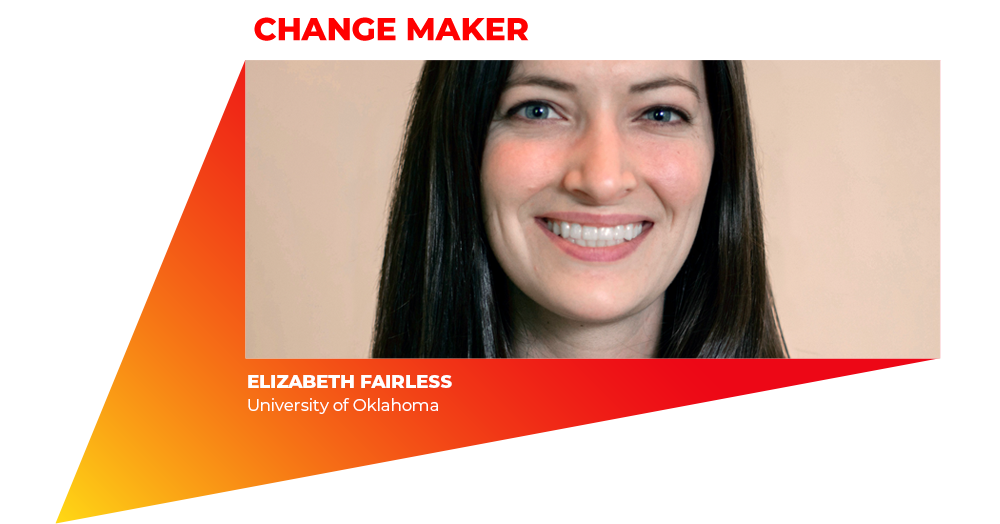Join a powerful, unprecedented alliance for better eye health for all.
Join IAPB-
Choose an alternate language here

As a member of the Choctaw Nation and one of just a handful of Native American ophthalmologists in the United States, Elizabeth Fairless is truly creating future change as a young leader in eye care.
Elizabeth graduated from Dartmouth College in 2015 cum laude with a BA in Neuroscience and a minor in Native American Studies. She then spent a year studying retinal degenerative diseases at the National Eye Institute in Bethesda, Maryland before earning her medical degree in 2020 from the Yale School of Medicine.
As the lead author of the important recent article titled “Ophthalmology Departments Remain Among the Least Diverse Clinical Departments at US Medical Schools” published in the prominent academic journal, Ophthalmology, Elizabeth has become a national leader in the field of vision health equity. Her other publications on equitable access to diabetic retinopathy screening, inherited retinal disease, and the neuroanatomy of the visual pathways form strong start to her scholarly leadership trajectory.
Throughout her educational years and early career, Elizabeth took on important roles in student mentorship and education programmes on behalf of the Association of Native American Medical Students for the Eastern United States and during service trips to the Navajo Nation.
Elizabeth’s dedication to addressing unequal access to eye care is evident in her work with Vision 2020 USA. In recent discussions with U.S. legislators on policy proposals, Elizabeth was very effective furthering proposals to improve population scale vision health evidence and to tailor interventions to reduce avoidable blindness across diverse and at-risk populations.
“Being a resident ophthalmologist is a joy and a challenge. I chose this field because it allows me to combine my love of visual science and my desire to serve my community and address the health disparities facing Native Americans. There are many things that make ophthalmology an incredible field – the delicate surgeries, the amazing technology, and the chance to help patients preserve their sight and quality of life. However, despite sight-saving advances in treatments, minority patients still disproportionately experience preventable vision loss. I’m proud to be working to change this fact, both through clinical work and through research. ”
– Elizabeth Fairless